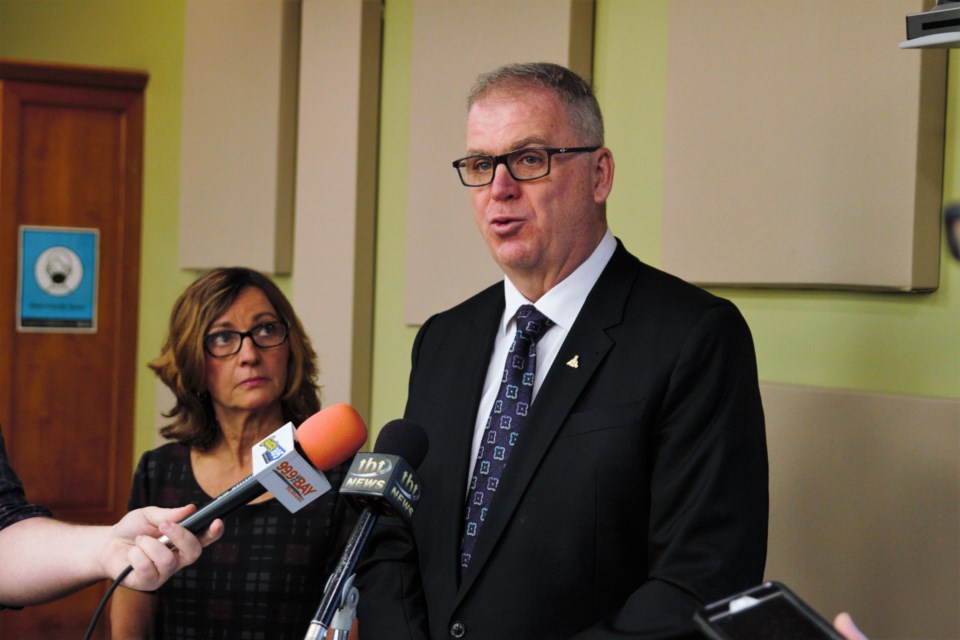THUNDER BAY — City staff have put forward a draft municipal budget with a historically high tax levy hike of 6.18 per cent before growth, making good on months of warnings that inflation and other issues would make for challenging spending decisions in 2023.
City council will review the document in eight meetings over the course of the coming month, with councillors able to propose changes, and will hold a final vote to approve the budget on Feb. 6.
The proposed increase is the highest since at least 2009, and follows a 2.42 per cent increase (before growth) approved by the previous term of council in 2022. That council had approved budgets with an average tax levy hike of roughly 2.32 per cent over its four years in office.
The tax levy is the total amount of money the city collects from its tax base, and does not directly correspond to the increase individual tax payers will see in 2023.
Individual tax bills are also influenced by any changes in property value assessments, and the city’s tax ratios, which specify how the levy’s cost is divided among the residential, commercial, and industrial tax classes.
City staff said at a Wednesday press conference the proposed 2023 tax levy hike would be the highest they're aware of in the city's history.
However, city manager Norm Gale said the 2023 budget had to address "worldwide inflation we have not seen in generations."
"This will be the most difficult budget process ever faced by a city council in the history of Thunder Bay," he said in a statement. "Coupled with the staggering inflation rates that everyone is experiencing, it leaves very little room to make adjustments and cuts within the budget."
City treasurer Linda Evans suggested the dramatic increase is not out of line with what other cities are facing. Of 11 other Ontario municipalities the city surveyed, she said the average proposed tax levy increase is 6.24 per cent after growth, with responses ranging from 2.9 to 9.3 per cent.
However, Evans also stated the overall impact of inflation on the 2023 budget was about $1.6 million – roughly one eighth of the proposed tax increase.
The largest single driver of the increase is a request from Thunder Bay police for a $4.4 million increase in 2023, accounting for over a third of the total $12.8 million tax levy hike.
If approved by council, that would constitute a 7.8 per cent increase in police spending, which has risen about twice as fast as spending on other city departments over the past decade.
Other major drivers include rising insurance premiums and fuel costs, implementation of the city's digital strategy and provincially-mandated composting program, and inflation increases in roads (notably salt and paint), facilities and fleet services, and long-term care.
City administration also reported finding some savings through staff vacancies, a $500,000 reduction to capital investment financed by the tax levy, and $300,000 in revenues from proposed user fee increases.
City council did not provide direction to staff on the 2023 budget as it normally would, since it was an election year.
However, Gale said he had directed departments to propose no new spending aside from wages and benefits, inflationary increases related to facilities and fleet, such as fuel costs, and program and services review initiatives already approved by council, such as the digital strategy.
The 6.18 per cent increase in the proposed budget would bring the city's total tax levy to $220.8 million, helping to fund a gross tax-supported budget of just over $413.1 million, about $13 million higher than in 2022.
The city's total tax-supported capital spending would decrease under the proposed budget, however, falling from roughly $71 million to just under $66 million.
The tax levy increase is 5.58 per cent, or $11.6 million, after estimated growth in the city's tax assessment base of 0.6 per cent, or $1.2 million, in 2022. That's 10 times the anemic assessment growth of 0.06 per cent the city reported in 2021.
That growth included a $500,000 increase in the city's commercial tax base, which Evans called a positive sign after years of slow commercial growth.
Evans said Wednesday she could not estimate the impact of the proposed tax levy increase on the median residential tax payer until council approves tax ratios for this year in April. However, Gale acknowledged the percentage increase for tax payers would be "close" to that for the levy overall after growth.
The proposed budget would see an addition of 50.9 full-time equivalent (FTE) permanent staff positions, amounting to a 2.4 per cent expansion. That includes 20.8 proposed by the Thunder Bay Police Service, while another 20.3 positions in areas like long-term care and Superior North EMS would be fully or partially funded by the province.
In rate-supported operations, the draft budget proposes three per cent increases to water and wastewater rates.
Residents can submit feedback on the budget at a public meeting on Jan. 12 in person, virtually, or through written submissions.
Deputation requests to present at that meeting must be submitted by noon on Jan. 11. More information is available at the city’s website.
